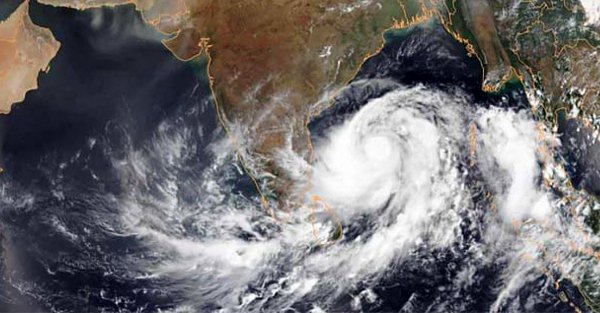
Even a fine wine has a use-by date. It all boils down to how balanced it is: as a wine ages, the imbalances also grow, and the sweetness eventually becomes sour. To compare Dilshan to a fine wine might be a tad insulting to Mahela, so given his playboy persona and questionable taste, a gaudy Cadillac Eldorado might be more apt.
There was a time when I disliked him; he would enter the middle overs of an ODI innings and bludgeon the ball with all his might and still only get a single. As a batsman, he was bordering on useless. Then there was a time I loved him. He seamlessly slot into the vacant chasm left by the retiring master blaster. He took to bowlers with such anger and ferocity you would be forgiven to think he was holding a personal grudge. So good was Dilshan 2.0 they even named a cricket shot after him.
Dilshan 3.0, however, has been in development over the last eighteen odd months. But the final version made its appearance in the Asia Cup 2016. The symmetrically trimmed beard was just adding a bit of detail, the pendants of gold were perhaps adding glamour, the touched-by-flame hair however could just be the result of bad advice. Version 3.0 for any cricketer is the mark of their downfall. Even the greatest of greats, Ponting, Kallis and Tendulkar, couldn’t avoid it. Dilshan, however, through clever system reboots and patch releases, has been masterfully delaying it.
 Dilshan 3.0: in development over the last eighteen odd months. Image courtesy Getty Images
Dilshan 3.0: in development over the last eighteen odd months. Image courtesy Getty Images
The problem with subcontinental cricket is that players often become larger than the game ‒ and that tends to blind people’s perspective. Just like Jayasuriya, and to an extent Sangakkara and Jayawardene, did, Dilshan has been thriving on this. Statistically he may have been above average, but statistics can be misleading; they are good to look at but often hide important insights.The runs he scored were masking the signs of his impending downfall. In the last twelve months he hasn’t been hitting the ball on the up, like he did during version 2.0. The good length balls he was so used to bludgeoning were now punching him in his stomach rather than flying off his bat. Yet, when he has been under pressure and the grumbling was getting audible, he would hit an innings of no consequence that would prolong his career just long enough. This could also have been a ploy to pump up his stats in order to give weight to his continual selection. During 2014 – 2015 there were many instances when Dilshan tailgated Mahela and Sanga, riding on the momentum created by their brilliant batting, especially during difficult periods in matches (like Lord’s 2014, R. Premadasa July 2013, R. Premadasa December 2014 and perhaps even the 2015 World Cup). Often, Mahela and Sanga had to sacrifice their wickets in order to boost the scoring rate as Dilshan was happy to amble along accumulating his runs.
For those who appreciate statistics and need empirical reinforcement, Dilshan’s average in the last twelve ODI matches since Mahela and Sanga retired is 35, while in the preceding twelve matches before their retirement it was 65.
 Dilshan made a habit of scoring big runs on the back of Sangakkara’s master classes. Image credit srilankacricket.lk
Dilshan made a habit of scoring big runs on the back of Sangakkara’s master classes. Image credit srilankacricket.lk
Dilshan may now be the elder statesman of the team, but he carries himself like a young punk from Compton rather than the mentor the youngsters need. This writer is a firm believer of freedom of expression, and not fitting to a designed mould, but any exuberance in character should also be a benefit to the team and not a hindrance. Dilshan has had some anger issues; there have been stories of him shouting and mentally degrading players for their mistakes while he was Captain. When Chandimal, with the backing of Angelo Mathews, was slowing the chase down at Lord’s in 2011 to get his hundred, Dilshan was animatedly shouting at them. It wasn’t an expression of passion; rather, a violent outburst unbecoming of a Captain.
Elder statesmen in cricket are not uncommon ‒ the difference is, the likes of Misbah Ul Haq not only brought Pakistan cricket out from the darkest passage of their existence, he and Younus Khan have been the backbone of their resurgence. When Brendon McCullum was made New Zealand captain, everyone laughed, but he became the architect of their success, creating a culture that would take the Black Caps to the future. In true McCullum style, he fought the urge to play the 2016 T20 World Cup and retired, handing the mantle of leadership to Kane Williamson. There is a lot Dilshan could learn from these two, though knowing his nature, he probably wouldn’t. We need not look any further for an example of another elder statesman continually adding value to the team. Sri Lanka’s quiet achiever Rangana Herath uplifts the team’s morale just by being there, whereas Dilshan’s selfishness seems to do the opposite.

An angry exchange with Ricky Ponting after stopping Shaun Tait mid runup. Image credit: wahab-riaz.blogspot.com.au/
It is not a case of stats, but of qualitative value that’s added to the team. At thirty-nine, he may be our best fielder, but that is a failing of the coaching staff, than a selection criterion. Dilshan has been an astute servant of Sri Lankan cricket, there’s no question about that; however, now he seems to have the presence of a man batting to keep his place rather than to the benefit of the team. Once in awhile, these would be in alignment and the team would benefit from this, but is this the long-term strategy the team needs?. Now the top order has to bat around Dilshan’s changed risk appetite and the youngsters coming into the team are reaping its losses as they have to change their game to keep the legend intact.
In conclusion, Dilshan’s continual inclusion, in this writer’s opinion, is dragging Sri Lanka further down the abyss: taking them further toward the dark, away from any light. Dilshan is the last remaining link to a bygone era that we sorely need to move away from. We’ve been playing a brand of cricket revolving around accommodating the whims of superstars and allowing them to play the roles they desired instead of building launching pads around developing young talent. As the intensity of the game grew, we were stuck behind aging legends who, despite their match-winning performances, kept halting the overall progress of the team. And if we are to move into the future and catch up with the rest of the world, we need to nurture the rising stars before they lose their spark
As a young captain Angelo Mathews also needs the freedom to build his own team without the added trouble of confronting egos.

Dilshan winning man of the match against Afghanistan this T20 World Cup. Image credit ESPN Cricinfo/AFP
Dilshan’s innings against Afghanistan did win us the match. It did save us from humiliation. But are the short term gains blinding us from long term disaster? Will every run scored by Dilshan be just another nail in Sri Lankan cricket’s coffin? Only time will tell.







